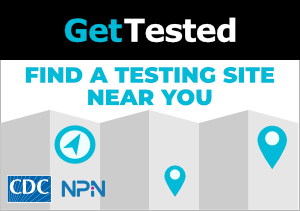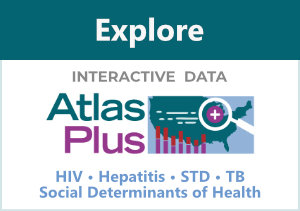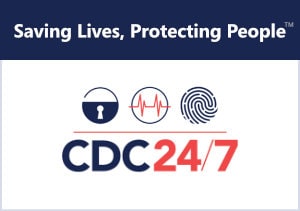Free Hepatitis C Tests at Mecklenburg County Health Department
PCSI Success Stories
Strengthening Collaboration and Service Integration
in Mecklenburg County, North Carolina
The Mecklenburg County Health Department (MCHD) in North Carolina (NC) has a long history of providing free HIV and syphilis tests at various sites in the community, including several substance abuse treatment centers. However, free testing was not available for hepatitis C. When clients requested a hepatitis C test, the health department referred them to one of the community clinics, which was often unaffordable for those who were uninsured. When MCHD received funding from CDC’s Program Collaboration and Service Integration (PCSI) cooperative agreement in 2010, those needs were on their way to finally being met.
Chronic hepatitis C infection is not a reportable communicable disease in NC; therefore, the epidemiology of the disease is unknown. CDC estimates that there are 3.2 million people living with hepatitis C in the United States, and that most of those people are not aware of their infection.
Through the PCSI cooperative agreement, Mecklenburg County Health Department can now
- Identify people living in NC with hepatitis C through testing.
- Develop partnerships with local and national resources to help people living with hepatitis C.
- Educate those diagnosed with hepatitis C on how to protect their health and reduce the risk of spreading the disease to others.
Program Activities
Under the cooperative agreement, MCHD was also able to expand community testing services to include hepatitis C screenings at substance abuse treatment centers in the county. To reach this goal, MCHD
- Collaborated with substance abuse treatment center staff to develop plans that included hepatitis C screenings among the health department services.
- Received training from the North Carolina Viral Hepatitis Prevention Coordinator.
- Collaborated with local infectious disease clinics, clinics that serve low-income and uninsured patients, and hepatitis C support groups to design a referral packet for people who tested positive for hepatitis C.
- Developed a partnership with external laboratories to conduct hepatitis C antibody tests. Once these partnerships were formed and all health department staff were trained, MCHD began offering hepatitis C screenings at drug treatment centers in March 2012.
This expansion of services included several new activities for the health department’s HIV test counseling staff, such as:
- Providing educational presentations to groups at the treatment centers on the risks of hepatitis C infection, CDC’s recommendations for testing, and local resources for persons living with hepatitis C;
- Individual risk assessments to determine if hepatitis C screening was appropriate;
- Data collection of the number of hepatitis C screenings and results at each test site; and
- Individual follow-up with people who tested positive for hepatitis C.
People who tested positive for hepatitis C met with an HIV test counselor, who provided education and support, which included:
- Information on how hepatitis C affected the body and steps to protect their health;
- Referrals to primary care clinics to receive medical follow-ups in order to confirm chronic infection and assess the need for treatment;
- Information on how to reduce the risk of transmission to others;
- Referrals to the national hepatitis C hotline and to the local hepatitis support group; and
- Referral to the health department for hepatitis A and B vaccinations.
Program Outcomes
Through the PCSI cooperative agreement, MCHD
- Provided free hepatitis C tests at seven substance abuse treatment centers.
- Tested 1,254 people at the substance abuse treatment centers between March 2012 and June 2013.
- Collected data on the positivity rate among individuals who requested hepatitis C tests (216 of the 1,254 clients tested positive; a rate of 17.2%).
- Educated 2,782 clients at the substance abuse treatment centers about hepatitis C between March 2012 and June 2013.
- Strengthened relationships with community testing sites by meeting the needs of clients who request hepatitis C screenings but could not afford them at local clinics.
- Increased awareness of the incidence of hepatitis C infection in Mecklenburg County.
MCHD has been able to effectively fill a gap in services by adding hepatitis C screening to the HIV- syphilis community-based testing program. This expansion of services will improve the health of people living with hepatitis C, as well as reduce the number of new infections in Mecklenburg County.
Future Directions
MCHD intends to continue offering hepatitis C screening as a routine part of HIV and STD community testing services. The health department has already secured funding through two grants to continue these services at the substance abuse treatment centers and to expand these services to other community testing sites.
For more information, please contact:
Nicole L. Beckwith, MPA
PCSI Program Coordinator
Communicable Disease Branch Division of Public Health N.C. Department of Health and Human Services
919-733-9559
Nicole.beckwith@dhhs.nc.gov
Printable PDF versionpdf icon of PCSI Success Story


